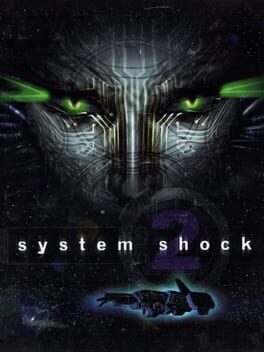In designing System Shock and Thief: The Dark Project, Looking Glass Studios aimed to achieve a "role-playing" experience that was quite different from videogames that drew their mechanics directly from tabletop RPGs. A key insight was that much of the arithmetic that in a tabletop environment might burden players and DMs alike could, in a digital environment, be handled more or less exclusively by the computer. A certain minimum of numerical awareness on the player's part is still necessary (health, ammo, etc), but there is simply no need for the usual RPG rube goldberg machine of having to do things to cause some numbers to go up to get some other numbers to go up in order to get the numbers you actually want to go up to go up.... Far more elegant approaches to player progression are now possible, and what Looking Glass achieved with System Shock—progression based on collecting equipment and suit upgrades—converges onto territory analogous to what Jeremy Parish charts in the transition from the console action-RPG to the metroidvania.
True, SS2's leveling system (by another name) is not exactly the sadly familiar contraption described above, but there is still a diegetically nonsensical experience currency that muddies the intuition driving the equipment-based elegance of SS1. True, grinding is not possible, but like all RPGs even with grinding, the whole system progressively locks the player out of options as the game advances, which by a sleight of hand is disguised as "choice." It is expressive enough that I may choose which weapons to fill my limited inventory space with, attending to the limitations imposed by the available resources (ammo, energy, etc), without forcing me to put points into a skill tree to use them effectively, or at all.
I'm admittedly being perverse in framing the benefit of such systems as a disadvantage when it's really a tradeoff: these systems allow for distinct paths of player character growth which, to be meaningful, must be mutually exclusive. That's nice. I prefer it the other way. ¯\(ツ)/¯
True, SS2's leveling system (by another name) is not exactly the sadly familiar contraption described above, but there is still a diegetically nonsensical experience currency that muddies the intuition driving the equipment-based elegance of SS1. True, grinding is not possible, but like all RPGs even with grinding, the whole system progressively locks the player out of options as the game advances, which by a sleight of hand is disguised as "choice." It is expressive enough that I may choose which weapons to fill my limited inventory space with, attending to the limitations imposed by the available resources (ammo, energy, etc), without forcing me to put points into a skill tree to use them effectively, or at all.
I'm admittedly being perverse in framing the benefit of such systems as a disadvantage when it's really a tradeoff: these systems allow for distinct paths of player character growth which, to be meaningful, must be mutually exclusive. That's nice. I prefer it the other way. ¯\(ツ)/¯
3 Comments
yeah it's a steep walk back from the design philosophy of the first and feels like a regression in some ways. really great game regardless, but I don't think the build variety or player choice is anywhere near strong enough to say it was a fair trade in the end and over time I've grown to looking at the conventional rpg-isms as a bit of a misstep
This comment was deleted
Great game no doubt. Just wanted to zero in on one aspect I find particularly open to criticism. For sure there are other ARPGs that fare better in certain respects. Appreciate the comments.

Scamsley
2 months ago
It's a game in a weird place, in spite of all these critiques I still actually really loved it (scores lower only cause I gotta replay) but it'd be fair to say it's not making the most of the concepts at play; especially given how elegant System Shock 1 was.